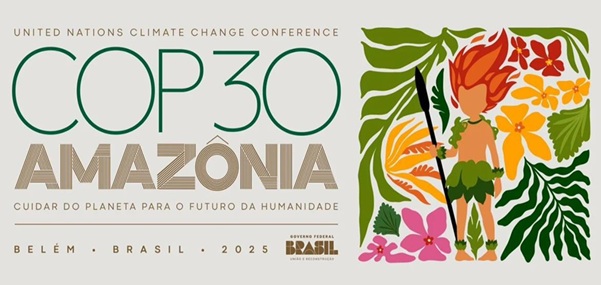(Prelims: Environment and Ecology; Current Affairs)
(Mains, General Studies Paper 3: Conservation, Environmental Pollution and Degradation, Environmental Impact Assessment.) |
Context
At the COP30 conference held in Belém, Brazil, more than 35 leading global philanthropic organizations from around the world made an initial commitment of $300 million to address climate-linked health challenges. The Belém Health Action Plan (BHAP) was also launched on the same occasion, which will form the foundation for health-focused climate policies in the coming years.

About COP30
- Event: Held in Belém, Brazil, from November 10 to 21, under the aegis of the United Nations Framework Convention on Climate Change (UNFCCC).
- Objective: To advance climate change, adaptation, mitigation, finance, and climate justice.
- This conference was particularly noted for addressing the effects of climate change on human health. Key Issues
- Global warming and heatwaves
- Deaths from air pollution, wildfires, and smoke
- Increasing prevalence of climate-sensitive diseases like dengue and malaria
- Severe lack of climate finance, especially for health adaptation
- Growing vulnerability of developing countries and health inequalities
- Need for strong, resilient, and inclusive health systems
Key Results
- Launch of the Belém Health Action Plan
- Large-scale philanthropic funding of $300 million to work on 'climate-related health'
- Collaboration of nearly 80 countries and organizations on health-focused climate adaptation
- Boosting policy, innovation, and finance on extreme heat, air pollution, and communicable diseases
- Prioritizing the integration of climate-related data and health data
- Emphasis on addressing health inequalities globally
India's Participation
- India advocated for increased adaptation finance at COP30.
- India stated that $643 billion will be needed for climate adaptation by 2030.
- India has spent $146 billion (5.6% of GDP) in 2021–22 alone to strengthen health and climate-sensitive infrastructure.
- India shared South Asia's largest experience in climate-health related policies, particularly on heat-action plans and flood management.
About the Belém Health Action Plan (BHAP)
- BHAP is a global framework aimed at adapting health systems to climate change.
- Key elements
- Strong health surveillance systems for climate-sensitive diseases
- Data-driven policy and rapid response capacity for extreme heat and disasters
- Investment in research, technology, and infrastructure
- Placing health equity and justice at the center of policy
- Emphasis on community-based adaptation
Benefits
- Accelerating global efforts to integrate health and climate
- Protection of poor and vulnerable communities
- Potential to save millions of lives from heatwaves, air pollution, and communicable diseases
- Development of robust, sustainable, and data-driven health systems
- New climate finance pathway for developing countries
Challenges
- Huge adaptation finance gap, with funding needed far exceeding available funds
- Health-focused climate policies still not a priority in many countries
- Weak health infrastructure in developing countries
- Lack of data, technology, and expertise
- Slow implementation of global commitments
Way forward
- Countries need to implement health-based climate strategies Investment in policies must be increased.
- International cooperation is essential to strengthen adaptation finance.
- Integrating health surveillance and disaster-response systems with digital technology must be ensured.
- Ensuring the participation of local communities and indigenous groups must be ensured.
- Climate change needs to be viewed as a health crisis, not just an environmental challenge.
Conclusions
COP30 made it clear that climate change is no longer just an environmental issue; it has become the single most significant threat to global health security. The Belém Health Action Plan and the global commitment of $300 million are important steps towards placing human health at the center of climate policies. Developing countries like India have an opportunity to develop sustainable and equitable models in both health and climate sectors to ensure a secure future for future generations.



